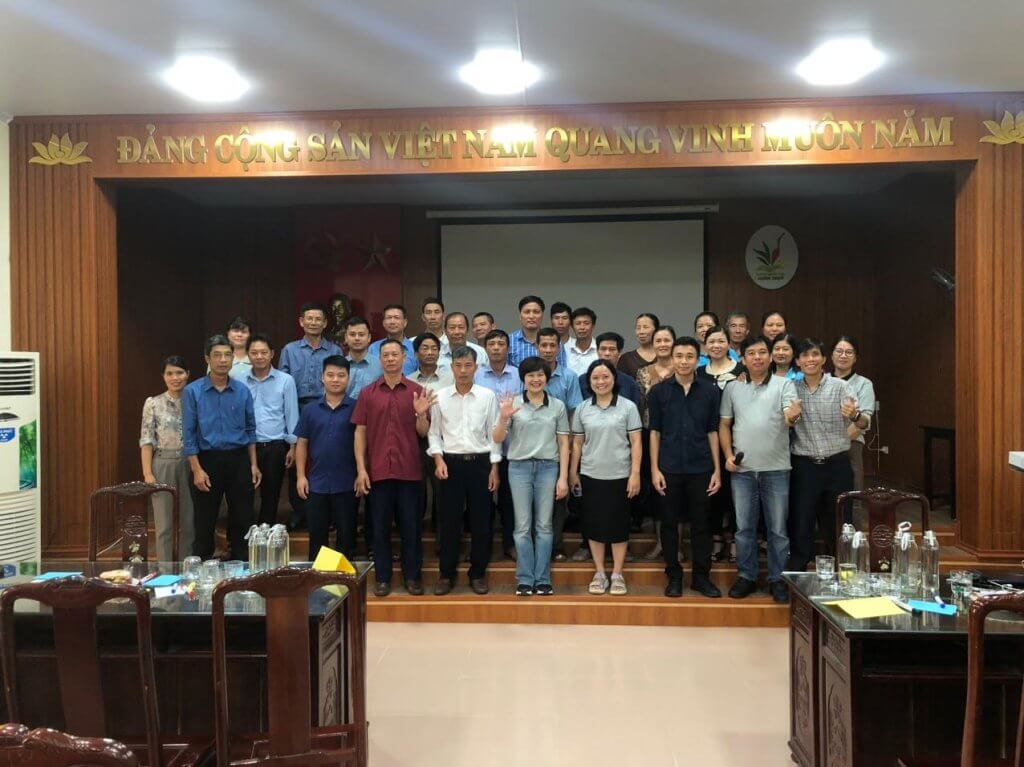Within the framework of the project “Sources, Sink and Solutions for Impacts of Plastics on Coastal Communities in Vietnam ” (referred to as 3SIP2C)- Work Package 4 – Policy and Governance (WP4) has organized a number of roundtable discussion events with the participation of relevant parties: state management agencies at different levels, unions, non-governmental organizations, businesses, and local communities.
The first roundtable discussion was held in Hanoi on November 28th, 2022 with the participation of representatives of central-level policy planning agencies, representatives of research and policy consulting units, social organizations and environmental organizations gathered to discuss new issues such as the expanded responsibility of producers and the role of research agencies and social organizations in implementing the goal. National target on reducing ocean plastic waste.
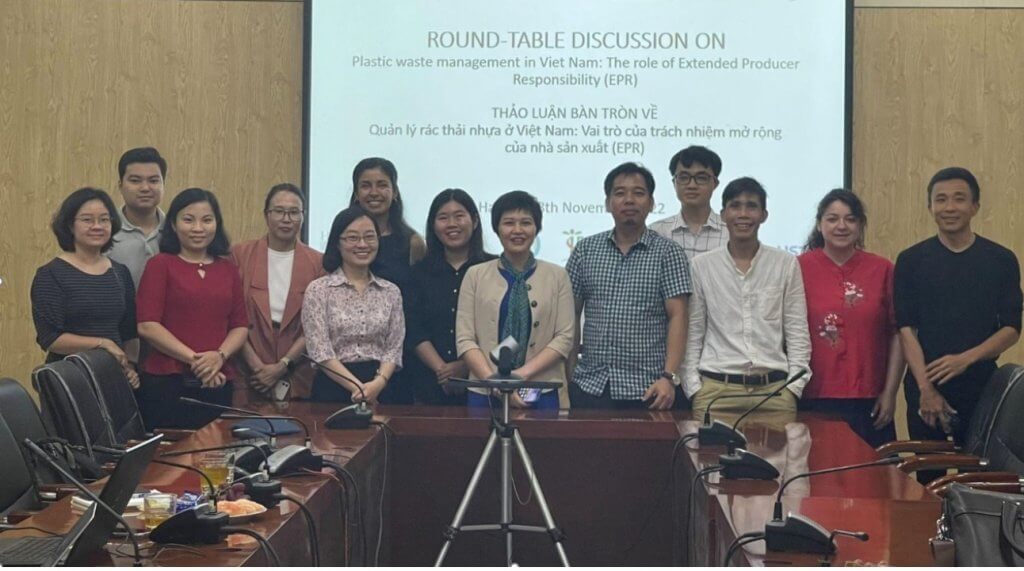
The second event was organised in Quy Nhon city, Binh Dinh province of Vietnam on November 30th, 2023 with the participation of representatives of provincial state management agencies, research agencies, businesses, associations, mass organizations, consulting units and environmental experts to discuss of how to achieve targets set by the national policies at the local level as well as resources needed to implement required actions. The third roundtable discussion was taken place on June 26th, 2024 in Giao Thuy district, Nam Dinh province in the North of Vietnam with the participation of local farmer, head of commune and villages to understand more about the level of national and provincial policy information related to plastic waste reduction transferred to local people – those directly involved in the management and reduction of plastic waste in general and plastic waste in particular.
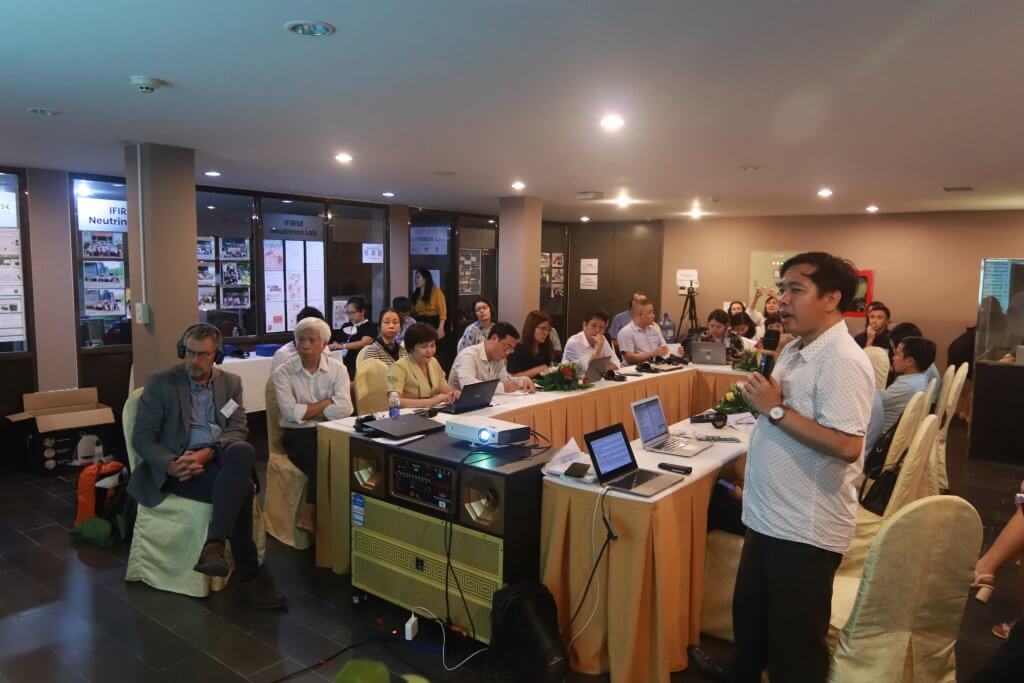
Although the participants at the roundtable discussions were different, they all focused on answering the question – how can we achieve the goal of reducing plastic waste – especially marine plastic waste set out in Decision No. 1746/QD-TTg dated December 4, 2019 of the Prime Minister promulgating an action plan on ocean plastic waste management until 2030 (specifically: reducing 75% of ocean plastic waste 100% of lost or discarded fishing gear will be collected, and 100% of fishing gear will be discarded directly into the sea; Tours and other coastal tourism services do not use single-use plastic products and non-degradable plastic bags; 100% of marine protected areas are free of plastic waste).
The results of the roundtable discussions show that setting a goal to reduce plastic waste, especially plastic waste above, is necessary, but it is important to identify specific measures and resources for implementation. In reality, there is also a need for baseline data, indicators to monitor and evaluate the effectiveness of solutions to reduce plastic waste over space and time.
At the roundtable discussion in November 2022, the Extended Producer Responsibility (EPR) regulations will begin to be enforced with the expectation that manufacturers will be more responsible for their products. products can create plastic waste from their production – however, the scope of application only applies to large businesses and some specific industries, so it will take time and methods to organize effective implementation. . Meanwhile, the issue of waste classification at source and management of household solid waste (including plastic waste) is discussed by interested parties, especially the role of scrap collectors – often called informal waste collectors or waste collectors. Clearly, conveying the message and national policy goals on solid waste management in general and plastic waste management in particular is important, especially new regulations and new approaches. In addition, the implementation of actions to reduce plastic waste needs to be appropriate to the scope (households, communities, localities) and have the active and regular participation of many parties.

The key topics for discussion in Quy Nhon in November 2023 brought many insights and shares about the importance of setting policy goals that must be linked to implementation resources. Besides, reducing marine plastic waste should be considered a part of household solid waste management. Reality shows that if integrated management of household solid waste is separated, it will be difficult to reduce marine plastic waste because of the lack of participation of the whole society and only focusing on fishermen, marine tourism activities… This shows that clearly identifying the source of plastic waste generation as well as the place where plastic waste accumulates – to have appropriate mitigation measures is very necessary for localities when implementing national policies on management. marine plastic waste. Currently, although there are regulations on solid waste classification at source in the 2020 Law on Environmental Protection, the development of implementation instructions is led by localities – while there are limited resources to carry out this task. usually not guaranteed. Participants – especially representatives of local environmental management agencies – all realized that the national policy target of reducing the amount of plastic waste in the sea by 75% by 2030 is unfounded. and difficult to implement and there are many challenges in monitoring implementation results due to the absence of baseline data, lack of monitoring indicators and highly representative monitoring locations. Besides, the amount of waste depends largely on other factors such as the fluctuation of plastic waste over space and time. One of the issues mentioned by many participants in the discussion is the resources to implement the goal of reducing plastic waste as well as how to organize the implementation and the participating parties, including clearly defining the roadmap as well as the way to organize the implementation and the participating parties. such as the role of each party (environmental management agency; fisheries and aquaculture; tourism; research and consulting units; people and businesses).
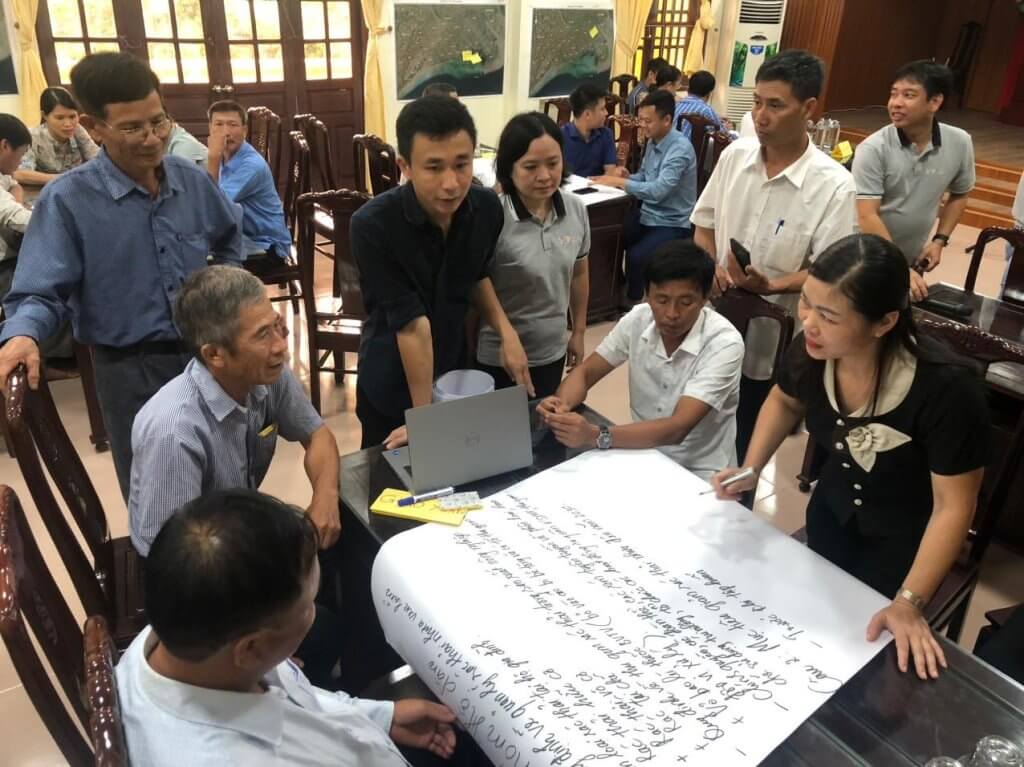
Outcomes from the event in Nam Dinh in late June 2024 indicate that local people do not know much information about the province’s policy goals/targets of reducing ocean plastic waste (transferred from the national goal) even though the document has issued since 2020. This shows that the message about the marine plastic waste management policy has not really been conveyed to people – those who directly generate plastic waste as well as those who take specific actions. to manage plastic waste locally. In addition, local people also proposed specific solutions to reduce waste in the locality – which emphasized the role of propaganda and raising awareness about the impact of plastic waste – including microplastics affect ecosystem health, people’s livelihoods as well as human health. Strengthening supervision of enforcement, especially waste classification at source, should be prioritized in the direction of sanctioning violations and rewarding actions to reduce plastic waste.
For the goal of reducing lost and damaged fishing gear at sea – local guides have made specific suggestions such as using fishing gear with a long shelf life, identifying areas or places where fishing is often done. damaged fishing gear such as reefs to warn fishermen or have a mechanism to buy back broken fishing gear left at sea to offset transportation costs from sea to land…
For the goal of not using single-use plastic products times at accommodation establishments and tourism businesses, in order to implement it, it is necessary to change consumption habits, have alternative products as well as need a mechanism to praise good examples and punish violating establishments… Clearly, after learning about the policy goals of ocean plastic waste management, people have made appropriate proposals, linked to the natural and socio-economic characteristics of the locality.
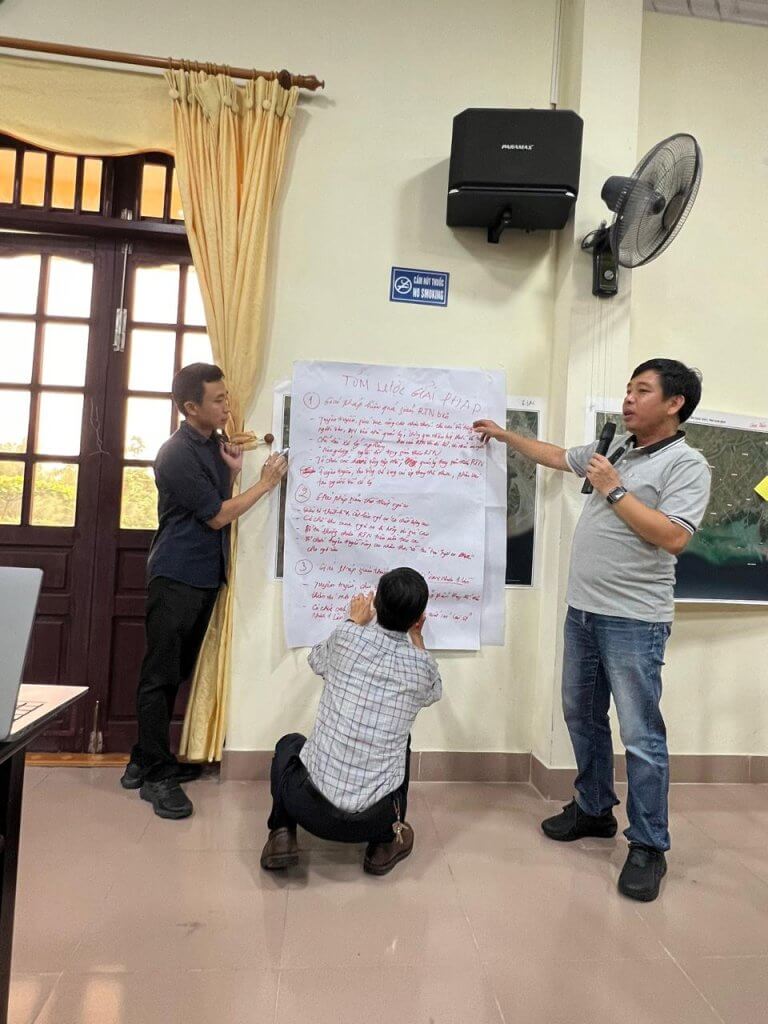
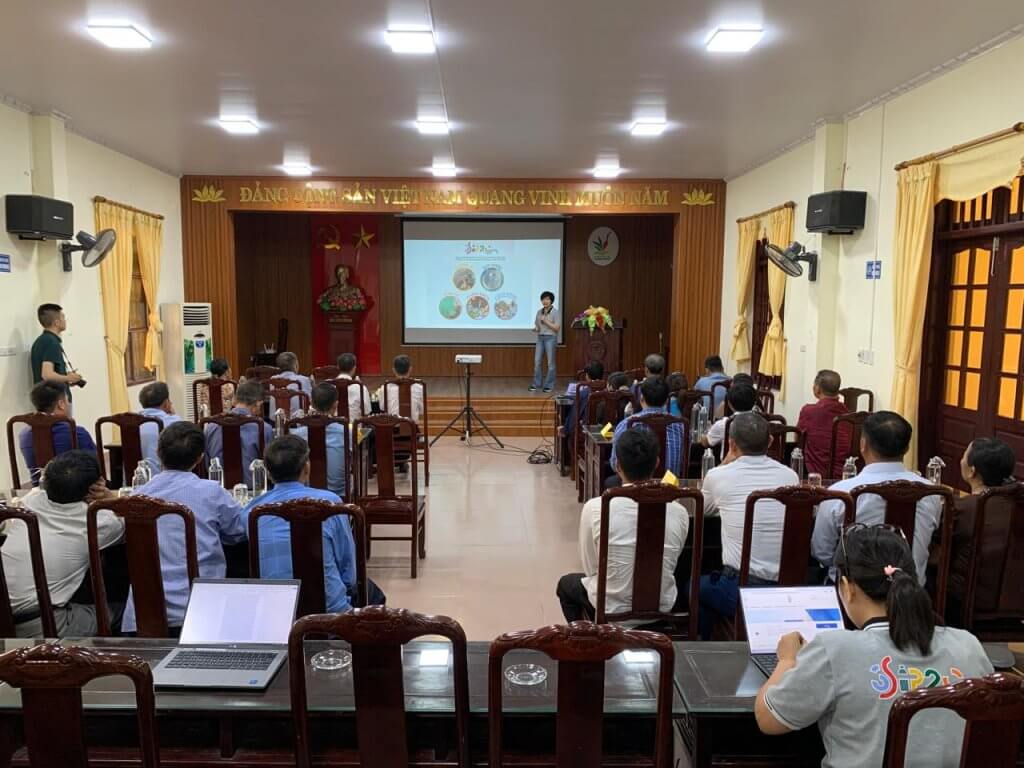
The results of roundtable discussions at different time (2022, 2023 and 2024) with 3 levels (national, provincial and community focuses) show that:
- Conveying policy messages and policy goals on plastic waste management and local plastic waste plays a very important role, helping relevant parties understand and join hands in taking action.
- Enhance full understanding of the harmful effects of plastic waste on natural ecosystems, people’s livelihoods and health, as well as the responsibility of the entire society in solving the problem of ocean plastic waste. extremely important role in attracting the proactive participation of people and businesses.
- Setting goals for each stage is necessary, but it is necessary to identify resources and implementation methods appropriate to the scale and characteristics of each locality, region or community.
- Specific solutions and actions need to be linked to local conditions, with people’s participation in the design, implementation and monitoring stages, and tracking implementation results will help mobilize resources. to perform.
- Minimizing ocean plastic waste requires the cooperation of management agencies (formulating clear and specific regulations, appropriate management orientation), and research and training units (providing evidence of Origin, accumulation and impact of plastic waste, including microplastics, on the health of ecosystems and humans), of businesses and people (implement specific actions).
Written by:
Nguyen Sy Linh, Institute of Strategy and Policy on Natural Resources and Environment (ISPONRE Vietnam)- Co-I of WP 4
Vu Hoang Thuy Duong, Institute of Strategy, Policy on Natural Resources and Environment (ISPONRE Vietnam) – Research Assistant under WP4
Nguyen Minh Duc, Post-doctoral research associate at Heriot Watt University, UK under 3SIP2C project
